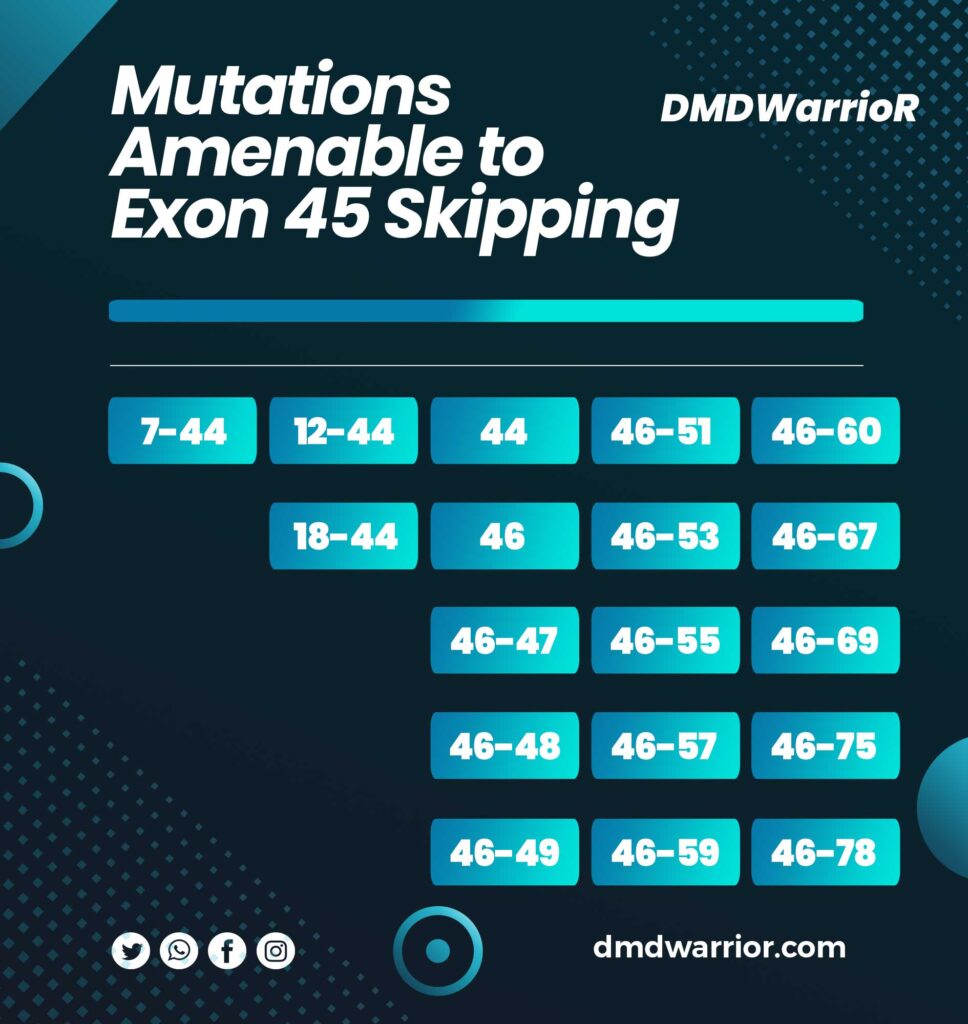As of recent years, exon skipping has emerged as a promising therapeutic strategy for certain types of mutations in the dystrophin gene. Exon 45 skipping is one of the most investigated strategies for addressing specific mutations in DMD. So, do you wonder the mutations amenable to exon 45 skipping? This approach aims to skip a faulty exon during the process of RNA splicing to restore the reading frame of the dystrophin gene, allowing for the production of a truncated but functional dystrophin protein. The restoration of this protein function can slow disease progression and improve muscle function in patients with specific mutations. [Read More: What is Exon Skipping]
Mutations Amenable to Exon 45 Skipping
Exon 45 of the dystrophin gene is one of the exons targeted for skipping in exon-skipping therapies. Mutations amenable to exon 45 skipping is specifically relevant for patients who have deletions in exons 7-44, 12-44, 18-44, 44, 46, 46-47, 46-48, 46-49, 46-51, 46-53, 46-55, 46-57, 46-59, 46-60, 46-67, 46-69, 46-75 or 46-78 of the dystrophin gene. These mutations lead to a frameshift, preventing the synthesis of functional dystrophin protein. [Discover Our Exon Deletion Search Tool]

Conclusion
Exon 45 skipping represents a targeted therapeutic strategy for a subset of Duchenne Muscular Dystrophy patients, specifically those with deletions involving exons 7-44, 12-44, 18-44, 44, 46, 46-47, 46-48, 46-49, 46-51, 46-53, 46-55, 46-57, 46-59, 46-60, 46-67, 46-69, 46-75 or 46-78. By skipping exon 45, the gene’s reading frame can be restored, allowing the production of a truncated but functional form of dystrophin. This approach holds significant promise for improving the quality of life and slowing disease progression for certain DMD patients.
Despite its potential, exon skipping is not a one-size-fits-all solution. Its effectiveness depends on the mutation type and the ability to deliver the therapeutic oligonucleotides to the target tissues. As research progresses and more clinical trials are conducted, exon skipping may become an essential part of the therapeutic arsenal for treating DMD, particularly for patients with mutations amenable to exon 45 skipping.
Read More: Next Generation Exon Skipping Therapies



